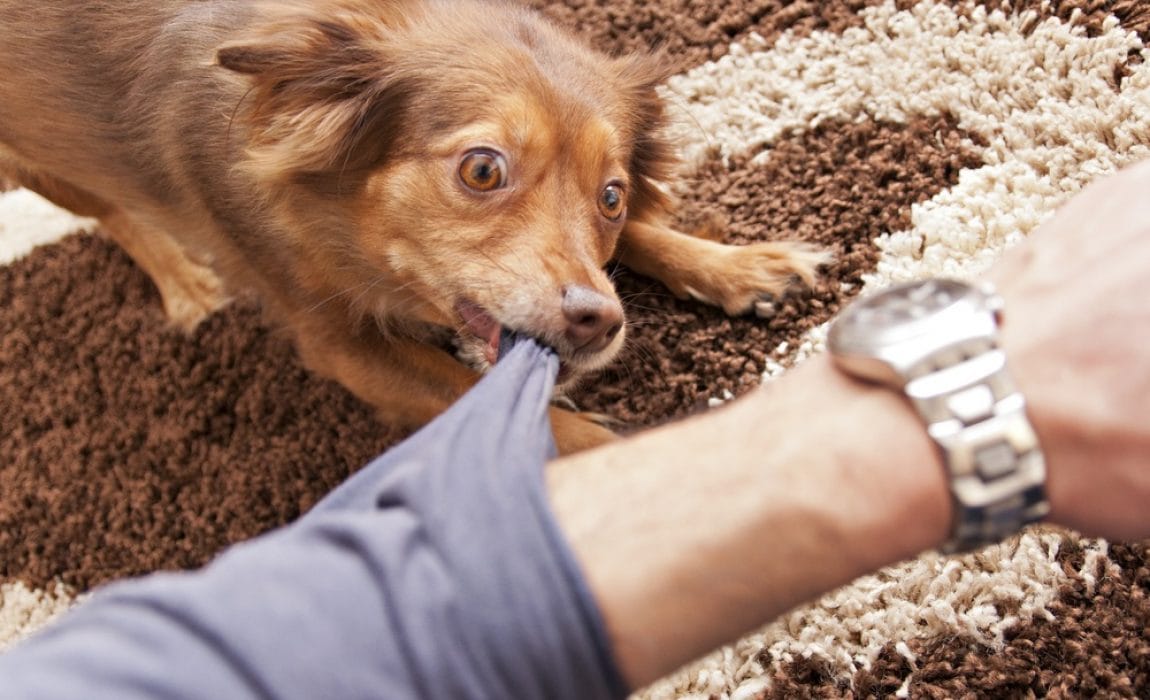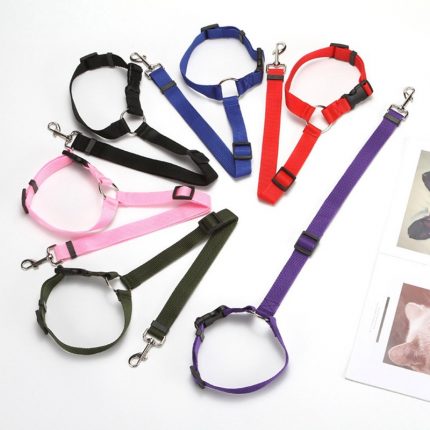As pet owners, we often encounter various behaviors from our furry friends that can leave us puzzled. One such behavior is when our dogs pretend to bite us. While it may seem alarming or even aggressive, this behavior is actually quite common among dogs and can have several underlying reasons. In this article, we will explore the possible explanations for Why Does My Dog Pretend to Bite Me and provide some insights into how to interpret and manage it.
The Reasons Behind Why Does My Dog Pretend to Bite Me
 Understanding the reasons behind Why Does My Dog Pretend to Bite Me is crucial in order to address it properly. Here are some key factors that may contribute to why your dog pretends to bite:
Understanding the reasons behind Why Does My Dog Pretend to Bite Me is crucial in order to address it properly. Here are some key factors that may contribute to why your dog pretends to bite:
1. Playful Behavior
One common reason Why Does My Dog Pretend to Bite Me is playfulness. Dogs often use their mouths to interact and engage in play with their owners or other dogs. This behavior is similar to how they would play with their littermates as puppies, using gentle mouthing and play biting. It’s their way of initiating playtime and expressing their excitement.
To manage this behavior, it’s important to establish clear boundaries and redirect their play onto appropriate toys or games. Encourage interactive play with toys that satisfy their natural chewing and biting instincts, such as rope toys or interactive puzzle toys.
2. Attention-Seeking Behavior
Some dogs may pretend to bite as a way to get attention from their owners. By engaging in this behavior, they are likely to receive a reaction or interaction. If your dog is seeking attention, it’s important to provide them with alternative ways to seek attention that are more desirable and appropriate. For example, you can teach them commands like “sit” or “shake hands” and reward them with praise or treats when they perform these behaviors.
3. Improper Socialization or Training
If a dog has not been properly socialized or trained, they may resort to pretending to bite as a way to interact with their owners or other dogs. This behavior is often seen in puppies who are still learning appropriate play behaviors and bite inhibition. It’s essential to provide early socialization and training to teach them how to control the pressure of their bite and engage in appropriate play.
Consulting with a professional dog trainer or attending puppy socialization classes can be beneficial in addressing this issue. They can guide you on how to teach your dog proper bite inhibition and redirect their biting behavior onto appropriate toys or games.
4. Communication and Emotional Expression
Another reason Why Does My Dog Pretend to Bite Me is to communicate their emotions. Dogs use their mouths to convey messages to their owners and other dogs. By gently mouthing or playfully nipping, they may be expressing their excitement, happiness, or even frustration. It’s important to pay attention to the context and body language of your dog to better understand their intentions.
By observing your dog’s overall body language, you can determine whether their pretending to bite behavior is playful or a sign of discomfort or stress. If you notice any signs of anxiety or aggression, it’s crucial to consult with a professional behaviorist to address the underlying issues.
Practical Recommendations for Managing Your Dog’s Pretending to Bite Behavior
1. Establish Clear Boundaries
Setting clear boundaries is crucial in managing your dog’s pretending to bite behavior. Teach them appropriate behaviors and discourage any form of biting or nipping. Use positive reinforcement techniques to reward them for good behavior and redirect their attention to appropriate toys or games when they start to engage in biting behavior. Consistency is key in reinforcing these boundaries.
2. Provide Sufficient Mental and Physical Stimulation
Dogs often engage in unwanted behaviors when they are bored or lack mental and physical stimulation. Make sure your dog receives enough exercise and playtime to expend their energy. Engage them in interactive games, obedience training, or puzzle toys to keep their minds stimulated and prevent them from resorting to pretending to bite as a way of seeking stimulation.
3. Socialize Your Dog Properly
Proper socialization is essential in helping your dog develop appropriate play behaviors and bite inhibition. Introduce them to various environments, people, and other dogs from an early age. Gradually expose them to different situations and ensure positive experiences. This will help them understand how to interact with others without resorting to biting or nipping.
4. Use Positive Reinforcement Training
Positive reinforcement training techniques, such as clicker training or reward-based training, can be highly effective in managing your dog’s behavior. Reward them with treats, praise, or playtime when they exhibit desired behaviors, such as playing with appropriate toys or refraining from biting. This positive association will encourage them to repeat these behaviors in the future.
5. Seek Professional Guidance
If your dog’s pretending to bite behavior becomes a persistent issue or if you’re unsure how to address it, seeking professional guidance is highly recommended. A professional dog trainer or behaviorist can assess your dog’s behavior, provide personalized advice, and guide you through effective training techniques to manage and modify the behavior. They can also help you understand any underlying causes and address them appropriately.
6. Be Mindful of Your Dog’s Body Language
Understanding your dog’s body language is crucial in interpreting their intentions and emotions. Pay attention to their overall demeanor, tail position, ear position, and vocalizations. If your dog’s pretending to bite behavior is accompanied by signs of anxiety, fear, or aggression, consult with a professional to address any underlying issues and ensure the safety and well-being of both your dog and those around them.
7. Stay Patient and Consistent
Changing a dog’s behavior takes time, patience, and consistency. It’s important to remain calm and avoid reacting negatively to your dog’s pretending to bite behavior. Instead, redirect their attention and reward them for engaging in appropriate behaviors. Consistency in training and reinforcement will help them understand what is expected of them and encourage positive changes over time.
By implementing these practical recommendations, you can effectively manage and address your dog’s pretending to bite behavior. Remember, every dog is unique, and it may take time to find the most suitable approach for your furry friend. Stay committed, seek professional guidance when needed, and foster a positive and loving relationship with your canine companion.
 Why Does My Dog Pretend to Bite Me – Conclusions
Why Does My Dog Pretend to Bite Me – Conclusions
Pretending to bite is a common behavior among dogs and can have various underlying reasons. It’s essential to approach this behavior with understanding and patience. By identifying the cause behind your dog’s pretending to bite behavior, you can take appropriate steps to manage and address it.
Our featured products:
Remember to provide your dog with appropriate outlets for play and attention-seeking, establish clear boundaries, and ensure proper socialization and training. If you’re unsure about how to handle this behavior or if it becomes a concern, consulting with a professional dog trainer or behaviorist can provide valuable guidance and support.
With the right approach and consistent training, you can foster a positive and harmonious relationship with your furry companion.















 Why Does My Dog Pretend to Bite Me – Conclusions
Why Does My Dog Pretend to Bite Me – Conclusions